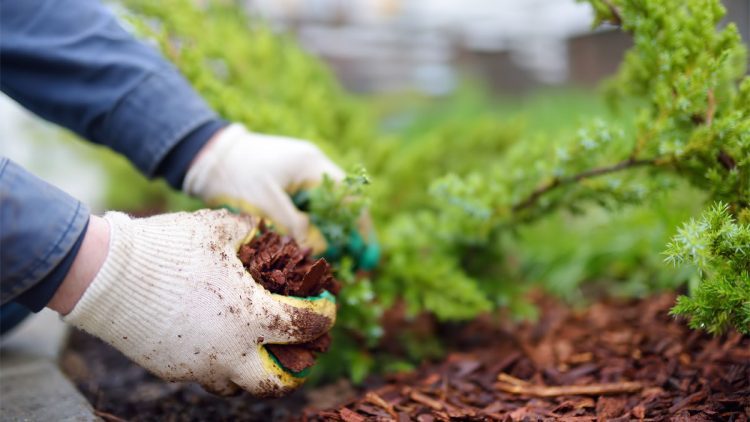What Is Mulching?
Mulching is a vital agricultural method that is beneficial for a lot of reasons. In this post, it is going to define mulching, how to use it, and the reason mulching is particularly important for fall gardens.
If you’re a novice gardener, you might only know mulching as a word used in landscaping. When people are thinking of mulching, they’re thinking of colored bark chips placed around foliage to enhance curb appeal or provide aesthetic attraction to an outdoor area. So, that is one way mulching can be utilized. However, it is also a valuable device for gardening and serves a lot of purposes.
Whereas bark chips are a great alternative for mulching garden spaces, mulch can actually be made of a lot of different materials: compost, straw, coffee grounds, newspaper, or other natural materials. In a nutshell, mulch is anything that can be distributed as a thick layer around the soil of your yard to safeguard and provide for your foliage. Mulch helps provide nutrients to foliage roots, so selecting a natural material (like untreated wood chips) is vital to maintaining the well-being of your garden.
7 Reasons to Mulch
The following are just some of the reasons to mulch:
-
Moisture Retainment
Mulch helps to retain the soil’s moisture, which is vital throughout the drier winter months. In the fall and often in the spring, a lot of climates begin to experience differing degrees of precipitation as the seasons go by. Providing a layer of mulch over your foliage’s soil can help keep that moisture down close to the plants’ roots, helping them adapt to the changing weather conditions.
-
Insulation
Mulch takes the role as an insulator, safeguarding plant roots from temperature variations and intermittent cold snaps. As the days get shorter in the fall and get longer in the spring, plants can be in jeopardy of fast temperature changes brought on by the changing seasons. As experienced gardeners know, one harsh weather snap could take out your entire garden. Mulching at the beginning of the season and maintaining this protective layer could help insulate your garden and stop them from getting so impacted by harsh weather fluctuations.
-
Weed Deterrent
Mulch hinders weed growth, decreasing competition for nutrients and water. Plants require lots of space and nutrients to grow and produce an abundant harvest. Weeds can typically threaten plants and are in competition for water, space, and nutrients. Mulching your garden, particularly following your plants becoming plantlets and have robust central stems, can help stop weeds from growing, as a thickened layer of mulch can limit the growth of weeds.
-
Soil Enrichment
As mulch decays, it enriches the soil with organic material, enhancing soil structure and fertility. Particularly when you are mulching with fertilizer or other nutrient-rich material, your plants are going to love the extra nutrients they get from all the mulch surrounding them. Mulch can restore nutrients that are absent or depleted in the soil, and when watering, those nutrients spread directly to your plants’ roots, boosting them. In addition, after the season is over and you till your soil for a fresh season of growth, that organic material is going to spread throughout your whole garden, uncovering even the deepest roots to vital nutrients.
-
Erosion Prevention
Mulching also stops soil erosion, maintaining a balanced growing setting for your plants. Combining organic material into the soil can help produce a more balanced, cohesive soil with stable nutrients. Not mulching each season, the plants in your garden are going to likely deplete many of the nutrients in the soil, leaving it fine and sandy. This type of soil erodes easily and can be challenging to re-plant in as it produces an unbalanced foundation for plant roots. Soil with continual mulching stays healthy and unified, helping stop erosion.
-
Water Conservation
By decreasing water evaporation, mulch helps conserve water and decrease irrigation requirements. Because mulch layers help keep moisture in the soil, they decrease the amount of water that gets evaporated. Besides helping your plants flourish, it also helps you conserve water and save money on your water bill.
-
Aesthetic Appeal
Lastly, as with landscaping, mulch gives a clean, orderly appearance to your garden, enhancing its general aesthetic appeal. We all want a neat, orderly garden. Mulching helps keep your plants organized and helps you see if there is any rivalry for space and other resources that are required to be dealt with in your garden habitat.
Landscaping Materials Phoenix by A&A Materials, Inc.
A & A Materials, Inc., located in Scottsdale, Arizona, offers Landscaping Materials for your landscaping needs. Call us at 480-990-0557 for more information.

